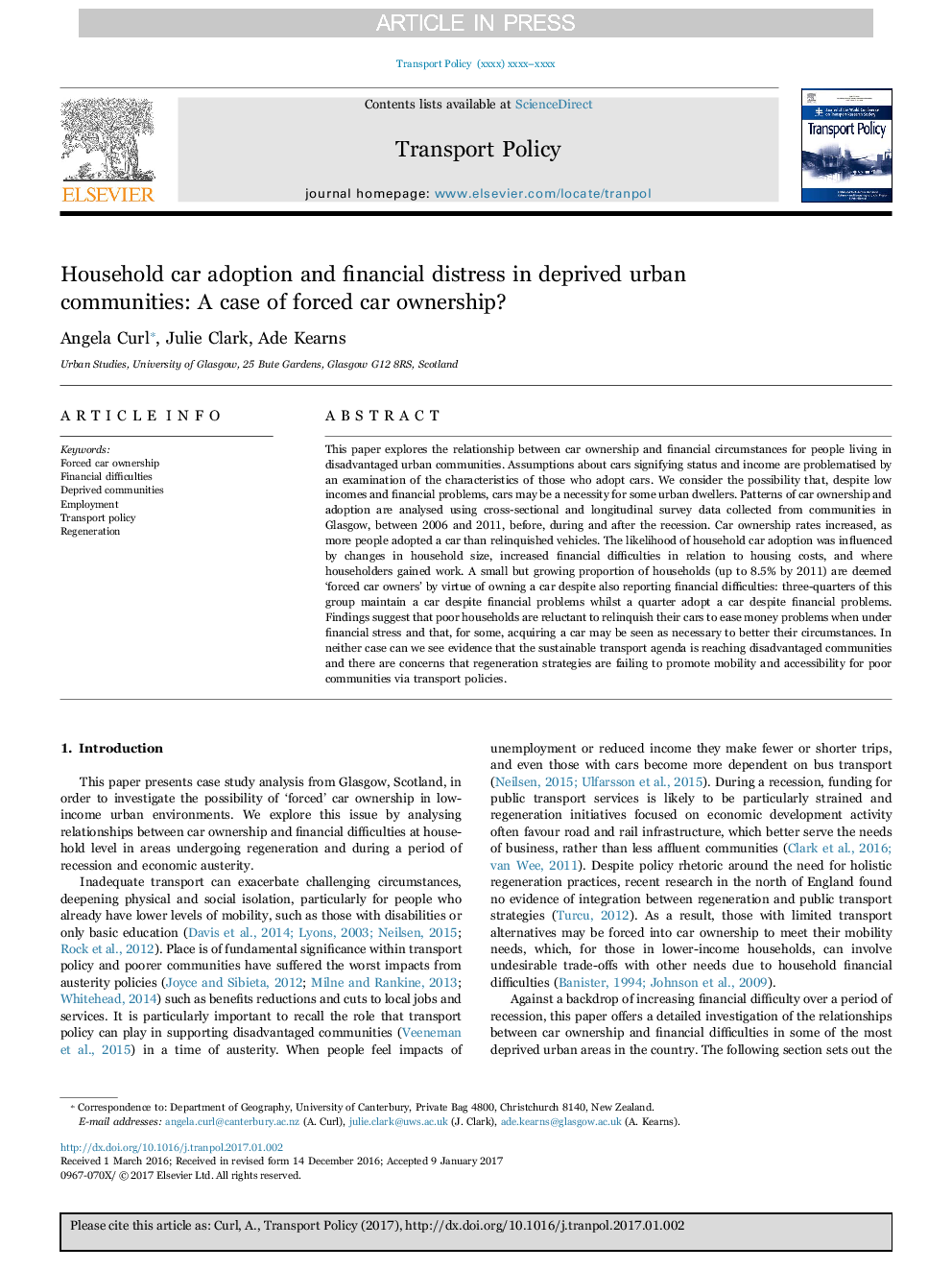ترجمه فارسی عنوان مقاله
تصویب خودرو و اختلال مالی در جوامع شهری محروم: مورد مالکیت اجباری خودرو؟
عنوان انگلیسی
Household car adoption and financial distress in deprived urban communities: A case of forced car ownership?
| کد مقاله | سال انتشار | تعداد صفحات مقاله انگلیسی |
|---|---|---|
| 112208 | 2018 | 11 صفحه PDF |
منبع

Publisher : Elsevier - Science Direct (الزویر - ساینس دایرکت)
Journal : Transport Policy, Volume 65, July 2018, Pages 61-71
ترجمه کلمات کلیدی
مالکیت اجباری خودرو، مشکلات مالی، جوامع محروم، استخدام، سیاست حمل و نقل، بازسازی،
کلمات کلیدی انگلیسی
Forced car ownership; Financial difficulties; Deprived communities; Employment; Transport policy; Regeneration;

